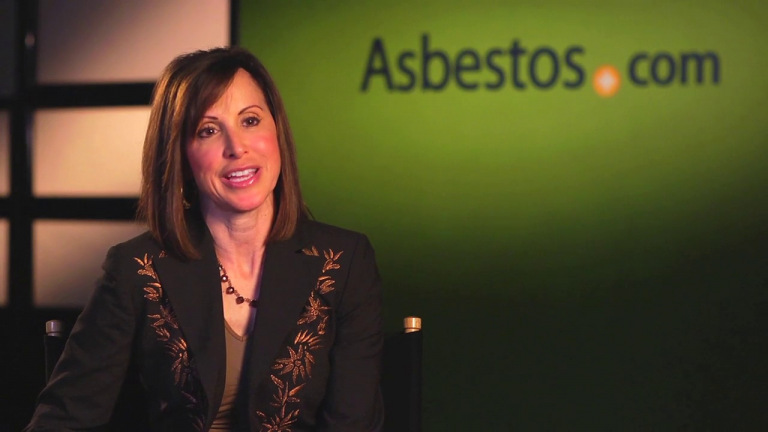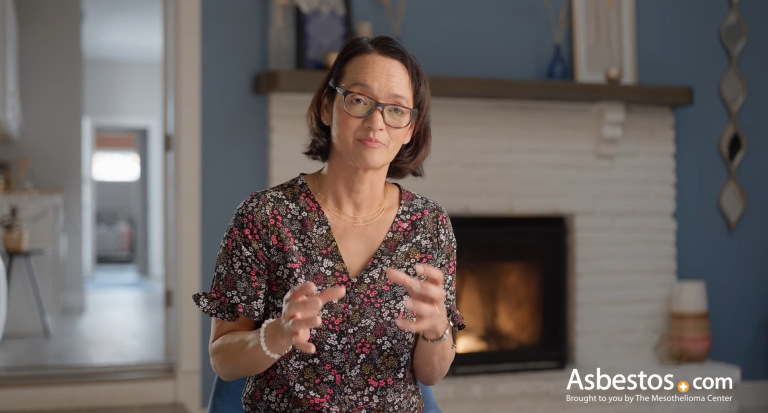Kevin says of alternative therapies in conjunction with his traditional treatments, “Has it helped? I don’t know. But I’m still doing well two years after my surgery.” He’s been receiving cupping treatments, or fire cupping. Heated cups are applied to the skin. Kevin told us, “The cups create a suction on your back. It might be a little painful, but it’s not much.”
Integrative Medicine and Alternative Treatments for Mesothelioma
Complementary and alternative mesothelioma treatments aim to ease symptoms and side effects of treatment. Common therapies for mesothelioma include acupuncture, meditation, yoga and medical marijuana. Other options are herbal medicine and energy therapy.
Integrative Medicine vs. Alternative Medicine for Mesothelioma
Integrative medicine for mesothelioma combines complementary therapies and standard medicine. It uses various options to manage symptoms and side effects of treatments. Alternative medicine, on the other hand, replaces standard mesothelioma therapies. Examples of standard therapies include chemotherapy, immunotherapy and surgery.
Integrative and alternative medicine include a variety of products and practices. They may help some mesothelioma patients. But a lack of evidence about their efficacy means they aren’t mesothelioma treatments.
Common Complementary Therapies for Mesothelioma
- Acupuncture
- CBD and Medical Marijuana
- Energy Therapies
- Exercise
- Herbal Medicine and Dietary Supplements
- Meditation
- Nutrition
- Qigong and Tai Chi
- Yoga
Patients with mesothelioma may use the same therapies in alternative and complementary medicine. Their intention and approach, however, are different. Most patients use them in addition to standard treatments rather than as a replacement.
Using complementary therapies in conjunction with standard cancer treatment is called integrative oncology. It uses safe, effective and evidence-based therapies for cancer.
If you want to try complementary medicine, speak with your doctor. Some therapies may conflict with standard methods or drugs. Not getting treatment may hurt your prognosis.
Types of Complementary Treatments and Alternative Therapies for Mesothelioma
Exercise, herbal medicine, mental health therapies and many others are types of complementary and alternative treatment for mesothelioma. Always talk to your health care provider before starting any new therapy for your symptoms.
Some therapies, like acupuncture and medical marijuana, can help manage treatment side effects. Mind-body techniques, like yoga and meditation, also lessen stress and negative emotions. Nutrition and exercise can boost your quality of life.

CBD and Medical Marijuana
Many mesothelioma patients use medical marijuana and CBD to ease nausea, pain and stress. This therapy lets patients pick their preferred delivery method. They can smoke the dried leaves, eat edibles and capsules or apply topicals to the skin.
A survey by The Mesothelioma Center found that 20% of mesothelioma patients aged 61 to 70 used CBD or medical marijuana. If you are considering using cannabis, talk to your doctor. Medical marijuana is not legal in all states, and federal law prohibits its use.
Cupping
Some mesothelioma patients have used cupping therapy to stimulate blood flow. A practitioner heats the cup and then places it upside down on the patient’s skin. As the trapped air cools, the cup creates a vacuum, pulling up the skin. Cupping is an ancient therapy that may treat a variety of symptoms, such as inflammation, pain and stress.
Some cancer patients report relief from symptoms with cupping. Pleural survivor Kevin Hession has used cupping for pain after his chest surgery. But evidence for cupping is scarce. It may be a useful treatment for lower back pain. Patients should discuss with their doctor if they want to use it for lung injury and respiratory diseases.
Exercise
Most oncologists recommend gentle exercise to mesothelioma patients. Light exercise can ease side effects, reduce fatigue and improve mood. It can also boost quality of life. Adding exercise to a patient’s treatment plan lowers the risk of death and cancer recurrence.
Exercise improves cardiovascular fitness in mesothelioma patients. This helps them cope with surgery and chemotherapy. Gentle exercise can improve sleep. It helps patients rest and recover better. Dr. Diana Molinares, director of oncology rehab at Sylvester Comprehensive Cancer Center in Miami, recommends frequent light exercise. It can help build a routine and fight fatigue.
Herbal Medicine and Dietary Supplements
Herbal medicines and dietary supplements, like vitamins and minerals, are another form of complementary medicine for mesothelioma patients. Sellers of herbs and supplements claim to boost wellness. But the FDA does not regulate supplements.
Mesothelioma patients should be cautious with herbal medicines and supplements. These substances don’t have to pass the same safety tests as prescription and over-the-counter drugs.
Herbal remedies, such as turmeric and mistletoe extracts, are popular choices among mesothelioma patients. These herbs are in traditional Chinese medicine.
Beta-Glucans
Beta-glucans are sugar compounds that may support the immune system in mesothelioma patients to fight infection and diseases. Beta-glucans don’t attack cancer directly, but they indirectly stimulate the immune system to attack cancer cells. Beta-glucans are first absorbed in the small intestine and broken into smaller parts, which then enter the bloodstream and interact with bone marrow and the immune system.
Beta-glucan may benefit mesothelioma patients, supporting the immune system through improved gut health. A 2023 study found that beta-glucan improved the gut health of colon cancer patients to reduce inflammation and promote cancer cell death. Taking a beta-glucan supplement carries a risk of side effects, including changes to blood pressure and gastrointestinal distress.
Mental Health Therapies
Mental health therapy is vital for mesothelioma patients. It helps them cope with the mental, emotional and social challenges of their diagnosis. It is as important as treating their physical symptoms. More cancer centers now offer counseling and support groups for patients and their families.
Mental Health Therapy for Mesothelioma
- Mental Health Counseling: Counselors can help patients cope with their diagnosis and treatment. They help patients process their emotions. Many cancer centers offer free counseling to patients.
- Pet Therapy: Spending time with a dog or cat can comfort and boost a patient’s mood. Many treatment centers now offer pet therapy to patients.
- Support Groups: Talking with others who share similar struggles can help a patient feel understood. This type of support and compassion is invaluable to mesothelioma patients.
Mental health support is an integral part of the treatment of any disease. It is often seen as a complementary therapy. Mesothelioma patients who use mental health therapy cope better with illness.
Mind-Body Therapies
Mind-body therapies have been scientifically proven to reduce symptoms in mesothelioma patients. These methods encourage the mind to stay present and aware of the body’s functions. They promote relaxation, reduce stress, and can improve health.
Mind-Body Therapy Modalities
- Meditation: The therapy requests that practitioners be mindful. They should focus on their breath or something constant. This therapy can help with sleep, mood and fatigue.
- Qigong and Tai Chi: The practices mix slow movements with mindful breathing. They are gentle and effective for fatigue, inflammation and mental health.
- Yoga: Hatha and Yin yoga are best for mesothelioma patients starting yoga. This therapy may improve breathing, sleep and mental health.
Not every mind-body therapy suits cancer patients. Mesothelioma patients should always consult their doctor. They need safe, gentle therapies that support the body and mind without adding strain.
Nutrition
Proper, balanced nutrition is vital before, during and after mesothelioma cancer treatment. A mesothelioma diet can help with nausea and trouble swallowing. Some cancer centers have dietitians to help mesothelioma patients. They can create personalized meal plans.
Eating well is crucial to feeling physically and mentally better. Good nutrition helps you to get through your treatments in the best way possible and helps the body heal.
More oncology teams are stressing good nutrition for mesothelioma. It is a key complementary therapy. Patients can change their diet to reduce inflammation. This may improve outcomes.

Additional Types of Complementary Medicine
Energy therapies, acupuncture, and other complementary therapies have helped ease mesothelioma symptoms and side effects. Research the benefits and risks first. Then talk to your doctor about which is best for you.
Other Complementary Therapies
- Acupuncture and Acupressure: Acupuncture uses thin needles to stimulate points on the body. It helps relieve pain, stress and other symptoms. Acupressure is a therapy that uses finger pressure on points instead of needles.
- Energy Therapies: Energy therapies use “life force energy” to help heal a person. Energy therapy include reiki, music therapy, sound therapy and Therapeutic Touch.
- TENS Therapy: Transcutaneous electrical nerve stimulation uses low-voltage electricity to relieve pain. Patients can do it at home. About 70% of patients experience reduced pain.
- Therapeutic and Lymphatic Massage: Massage is not just relaxing. It can also stimulate lymph drainage to relieve fluid buildup. Other types of massage can reduce pain, fatigue and stress. But only use techniques approved for cancer patients.
Another type of complementary therapy is palliative care, which aims to ease symptoms and promote well-being. While some believe this type of care is for end-stage patients, using it earlier in treatment improves prognosis and life expectancy.
As with all complementary and alternative medicines, you should consult your doctor before using them. Some mesothelioma patients may tout a supplement, such as Essiac tea, but your doctor is the only person whose medical and health advice you should follow.
The Dangers of Essiac Tea for Cancer Patients
Essiac is a blend of herbs, usually consumed as tea, promoted as a cure for cancer. No research of the herbal blend has been conducted on people with mesothelioma. Clinical studies show that Essiac doesn’t cure cancer, and it may even promote the growth of certain cancers. An Essiac tea benefit is that it is high in antioxidants.
In 2009, the U.S. Food and Drug Administration cited a brand of Essiac tea on a list of fake cancer cures that consumers should avoid. Consumption of Essiac for cancer is not highly likely to cause serious side effects. But mesothelioma patients should get approval from their doctor before they try any herbal remedy.
Essiac tea side effects include skin problems, heart problems, nausea and vomiting. A 2022 case report published in Heart Rhythm described a patient diagnosed with a complete heart block caused by drinking a homemade version of Essiac tea. The patient required a pacemaker to fix the block.
Integrative Oncology Programs at Mesothelioma Cancer Centers
Some mesothelioma cancer centers offer integrative oncology programs that include complementary therapies. These programs aim to treat the whole person, not just the disease.

75 Francis St, Boston, MA 02115
Year Built: 1832
Number of Beds: 793 beds
Number of Physicians: 4


10833 Le Conte Ave Los Angeles, CA 90024
Year Built: 1960s
Number of Physicians: 2
Working with your doctor to find the right program for you is best. Research and ask questions. Find out what therapies may help your symptoms and support your treatment.
Can Integrative Medicine Improve Mesothelioma Survival?
Integrative oncology doesn’t promise a cure for mesothelioma. It also doesn’t always improve survival rates. Complementary therapies aim to improve comfort and quality of life. They also seek to help patients tolerate conventional mesothelioma treatments.
For example, patients suffering from chemo’s side effects can find relief in complementary therapies for nausea and vomiting. The ability to complete the full chemo treatment can have a positive impact on survival. It’s vital to follow your mesothelioma doctor’s treatment plan. Do this even if the complementary therapies provide some relief. Avoiding any standard treatment can harm a patient’s survival.
Mesothelioma Survivors Who Used Integrative or Alternative Treatments
Many people with mesothelioma add complementary therapies to their conventional treatment plan. In the past, some patients turned to alternative treatment because of a lack of effective treatment options. Because alternative therapies don’t consistently work for every patient, most patients opt to integrate complementary therapies with treatments like chemo and surgery.
In 2016, doctors diagnosed Jim Huff with pleural mesothelioma. He didn’t want to endure the harsh side effects of chemotherapy. Instead, he used medical marijuana, taking a dose of CBD oil twice a day. For 15 months, his CT scans showed no new tumor growth. When his cancer progressed, Huff found success with Keytruda, an immunotherapy drug. “Something is working, a combination or whatever,” Jim said. “I’m just riding this wave as long as I can.”
In 1980, doctors diagnosed Jerry Lampe with peritoneal mesothelioma. At the time, there were few treatments for the rare cancer. Doctors gave him only six to 12 months to live. A friend suggested Lampe check out the Immune Augmentation Therapy Clinic, an experimental cancer center in Freeport, Bahamas. He had daily injections of a protein mixture made from the blood of healthy donors. Today, Lampe may be the longest-living mesothelioma survivor in the U.S. “There is no way to prove now what it did or didn’t do for me back then,” Jerry said. “[The injections] built up my immune system, and I survived.”
In 1996, Sissy Hoffman had a radical surgery called an extrapleural pneumonectomy. Dr. David Sugarbaker, a pioneer in mesothelioma treatment, did the surgery. Hoffman thrives today. She eats well and does tai chi and water aerobics. It’s allowed her to take a lifetime trip to Italy and even snorkel despite having one lung. “Was it easy? No, it was not,” Sissy said. “But I am stronger for it, and I have a deeper appreciation for life.”
Common Questions About Alternative Treatments for Mesothelioma
- Can integrative or alternative treatments for mesothelioma help with symptoms?
-
Supplemental mesothelioma treatment options often prove useful for managing the severity of symptoms. Many patients turn to complementary therapies. They want to ease the side effects of standard mesothelioma treatments and boost their health.
Patients considering complementary treatments should consult their doctor first. This is to avoid any negative interactions with new treatments. Doctors and a patient’s care team can recommend therapies. They can also provide info on integrative oncology centers that offer complementary and traditional treatments.
- How do complementary therapies help manage treatment side effects?
-
Complementary therapies often help with the side effects of standard mesothelioma treatments, like chemotherapy. The ability to tolerate conventional treatments to completion can help increase the patient’s chances of surviving mesothelioma.
A patient should choose complementary therapies based on their symptoms, depending on their type and severity. Medical marijuana can often manage nausea. Proper nutrition boosts well-being. A meditation practice can reduce stress. The best approach is to combine several alternative therapies.
- Are alternative, naturopathic and holistic medicine for mesothelioma the same?
-
These terms mean different approaches to treating mesothelioma. Alternative medicine for mesothelioma is any treatment that avoids standard methods. It uses only non-standard methods to treat or cure the disease. This can include a special diet instead of cancer drugs.
Naturopathic remedies are a type of alternative medicine. They use herbs and natural remedies to support the body’s self-healing. Holistic medicine treats the whole person. This approach often includes multiple therapies like integrative medicine, which combines conventional mesothelioma treatments with complementary therapies.
- Can I use Essiac tea alongside my cancer treatments?
-
Certain chemo drugs, including the experimental chemo drug DX-8951f, can negatively interact with Essiac. This tea might slow the rate at which your body metabolizes certain drugs. This effect may increase a drug’s potency or prolong its effects.
A report indicates that Essiac may inhibit liver enzymes known as cytochrome p450, which play a crucial role in eliminating some cancer medications from your system.
- How can I incorporate beta glucan into my diet?
-
Eating more foods that contain this type of fiber is one way to incorporate beta-glucans into your diet. They appear in a range of plant-based foods, including oats, barley, seaweed and certain mushrooms. People with mesothelioma can speak to a dietitian to learn more about eating a diet with supportive nutrients.
While many medical providers prefer patients to get nutrients such as beta-glucans through their diet, supplements are available for those who are unable to get enough nutrients through dietary changes alone. If you’re considering taking supplements, speak with your doctor about possible beta-glucan benefits, adverse drug interactions or side effects.






